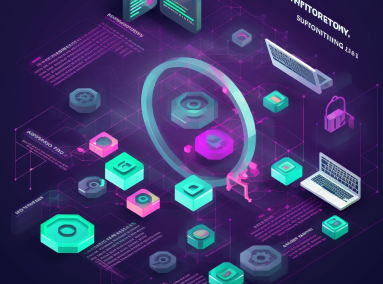IT Audit What competencies will IT auditors need to have in the future?
23-05-04
본문
The digital age is rapidly advancing, and IT audit professionals need to develop new skills to keep up with ever-changing technology trends.
Assessing and improving the control environment of financial data and the infrastructure and systems associated with it is a key role of IT audit professionals.
To be effective in this role, professionals must continue to develop forward-looking skills.
In this article, I will share my subjective thoughts on what I believe are the key competencies that IT audit professionals will need to have in the future.
1. Ability to utilize data analytics and machine learning
Data analytics will play a very important role in IT auditing in the future. Auditors will need to be able to process large amounts of data, process it, and derive useful information from it.
They will also need to be able to use machine learning algorithms to perform tasks such as detecting anomalous transactions, analyzing logs, and predicting security threats.
To do this, you'll need to be proficient in programming languages like Python and R, and be able to use leading machine learning libraries and tools.
2. Ability to utilize cloud-based security solutions
The ability to understand and utilize cloud-based security solutions is essential for IT audit professionals.
Many organizations will be moving to the cloud in the future, and this requires the ability to work with cloud platforms such as AWS and Azure.
You should be able to use tools like Amazon Macie and Azure Security Center to search for financially sensitive information, test controls, and assess data security.
To build competency in the cloud, IT auditors need to understand the security frameworks and standards of cloud service providers, and it is important to gain experience in auditing cloud-based infrastructure and services.
3. Ability to utilize blockchain technology
Blockchain technology can improve the integrity and safety of transaction records. While there are still very few audits of blockchain, it is expected that in the future, cryptocurrencies will be attributed as assets and will be more likely to be audited.
(IT audit professionals will need the ability to build and integrate blockchain networks, utilize smart contracts, and more. They will need to understand blockchain platforms (Ethereum, Hyperledger, etc.) and acquire knowledge of related programming languages (Solidity, etc.). They will also need to be able to identify the latest trends in blockchain-based financial services and systems and incorporate them into their audit procedures.
While these skills may not be in high demand, I believe that if you build these competencies, you will be uniquely positioned to audit the blockchain sector.
4. Ability to utilize automation tools
The ability to use automation tools to automate some of the tasks of IT control testing can greatly improve the effectiveness of internal controls.
We will see more companies leverage tools like Ansible, Puppet, and Selenium to automate server and infrastructure deployments, log analysis, and security patches and updates.
IT auditors will also need knowledge of relevant programming languages and scripting techniques to use automation tools to improve efficiency, as well as the ability to identify areas of risk.
5. Ability to detect and respond to security threats using artificial intelligence and machine learning
The ability to leverage artificial intelligence (AI) and machine learning (ML) technologies to detect and respond to security threats in real time is becoming increasingly important for IT audit professionals, not just in internal control.
The ability to deploy AI-based systems such as SIEM and UEBA and use ML algorithms for anomaly detection and threat prediction is required.
IT auditors don't need to be able to develop these services themselves, but they should at least have an understanding of deep learning frameworks like TensorFlow and Keras.
6. Cybersecurity expertise
Cybersecurity is one of the core areas of IT auditing. IT audit professionals need to have expertise in various areas of cybersecurity, including network security, application security, and endpoint security, not just ITGC or ITAC.
This requires an overall understanding of the network, not just the functionality of tools such as intrusion detection systems (IDS), intrusion prevention systems (IPS), encryption technologies, and web application firewalls (WAF).
You should also have knowledge of international standards and frameworks related to cybersecurity (ISO 27001, NIST, etc.) and the ability to apply them to the audit process.
7. Compliance and legal knowledge
IT audits performed as part of an accounting audit deal with sensitive areas, so you'll be exposed to a wide range of emerging technologies, but you'll also need to know if you're complying with accounting-related regulations and laws.
IT audit professionals are required to have an understanding of domestic and international regulations and laws such as SOX, GDPR, PCI-DSS, etc. so that they can assess and improve the compliance level of the organization.
It is important to stay abreast of the latest trends in various regulations and laws and apply them to the company's internal control system to minimize risk.
8. Communication and negotiation skills
This is more of a must-have than a future competency, but it requires interviewing skills and the ability to communicate audit findings and recommendations in a way that is easy to understand. Excellent communication skills enable you to clearly communicate audit findings and work with stakeholders.
In addition, negotiation skills are important to be able to negotiate with various stakeholders to effectively drive control environment improvements. To this end, you should master standard communication skills and conflict resolution techniques, and build your knowledge of successful negotiation strategies and techniques.
9. Continuous learning and adaptability
Continuous learning and adaptability are necessary to keep up with the rapidly changing technology landscape. IT audit professionals must have the ability to quickly learn new technologies and tools, identify changing industry trends, and incorporate them into the audit process.
It's important to update your knowledge in a variety of ways, including attending professional seminars, keeping up with the latest technologies, reading books and articles, and taking online courses.
Conclusion
With the rapid development of the digital age, IT audit professionals need to be able to respond to changing technology trends by continuously acquiring skills, and data analytics, cloud security, blockchain, automation tools, artificial intelligence and machine learning, cybersecurity, compliance and legal knowledge, communication and negotiation skills, and the ability to continuously learn and adapt will be key competencies for future IT audit professionals.



